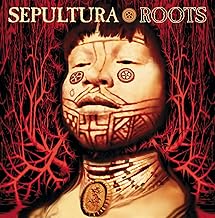Sepultura, the legendary metal band from Brazil, was known for its raw and honest music that tapped into primal energy. Their aggression felt intense and potent, devoid of flashy solos, which set them apart in the metal scene. One remarkable instance of their dedication to capturing authentic energy was when they traveled to the indigenous village Pimentel Barbosa in Mato Grosso to perform a tribal jam of “Kaiowas.” This performance was a tribute to the Brazilian Indian tribe that had committed collective suicide in protest against the government’s land policies. The band’s journey into the heart of the Amazon rainforest to play live with the Xavantes Indians showcased their deep-rooted connection to their heritage, making their music palpably raw and real.
Sepultura’s commitment to exploring their cultural roots went beyond typical metal bands, adding depth and authenticity to their music. The band’s willingness to immerse themselves in indigenous traditions and collaborate with the Xavantes Indians highlighted their respect for Brazil’s diverse heritage. This unique approach not only enriched their music but also served as a powerful statement on cultural preservation and solidarity with marginalized communities.
The performance of “Kaiowas” in the indigenous village was a poignant moment that transcended music, symbolizing unity and resilience against oppression. Sepultura’s decision to honor the indigenous tribe through their music resonated profoundly, emphasizing the band’s social consciousness and advocacy for indigenous rights. By blending metal with tribal influences, Sepultura created a bridge between different worlds, showcasing the universal language of music in fostering understanding and empathy.
Through their music, Sepultura challenged conventional boundaries and stereotypes, embodying a spirit of rebellion and resistance against injustice. The band’s fusion of metal with indigenous sounds not only showcased their innovative approach to music but also underscored the power of art in promoting cultural diversity and social change. Sepultura’s performance in the indigenous village serves as a testament to the band’s enduring legacy as cultural ambassadors who transcended musical genres and advocated for unity through their art.
As Sepultura continues to inspire generations of fans worldwide, their journey to the indigenous village stands as a testament to the transformative power of music in bridging cultural divides and fostering mutual respect. By embracing diversity and celebrating indigenous heritage, Sepultura set a precedent for artists to use their platform to amplify marginalized voices and promote social justice. The band’s legacy extends far beyond their music, serving as a reminder of the importance of cultural exchange and collaboration in creating a more inclusive and harmonious world.
📰 Related Articles
- Angelus Apatrida’s Hidden Evolution: Thrash Metal Band’s Musical Journey
- Wolvennest’s Musical Journey: Blending Doom Metal, Psychedelia, and More
- Within Temptation’s Resilience: A Symphonic Metal Journey
- Vienna’s Cultural Charms: A Journey Through History and Art
- Unearthing Slayer’s Hidden Gems: A Tribute to Metal Legends
📚Book Titles
- Ethereal Wings: 60 Stunning Butterfly Tattoo Designs and Their Spectacular Journey
- Raiders of the Roaring Abyss: An Explosive Tour into the Heart of Death Metal’s Revolution
- The Essential Finger Tattoo Handbook: Designs, Meanings, and Care
- The Meme Effect: How Digital Humor Shapes Culture and Conversation





![Sepulnation: The Studio Albums 1998-2009 [5 CD Boxset]](https://m.media-amazon.com/images/I/71Hn54FPNQL._AC_UY218_.jpg)
